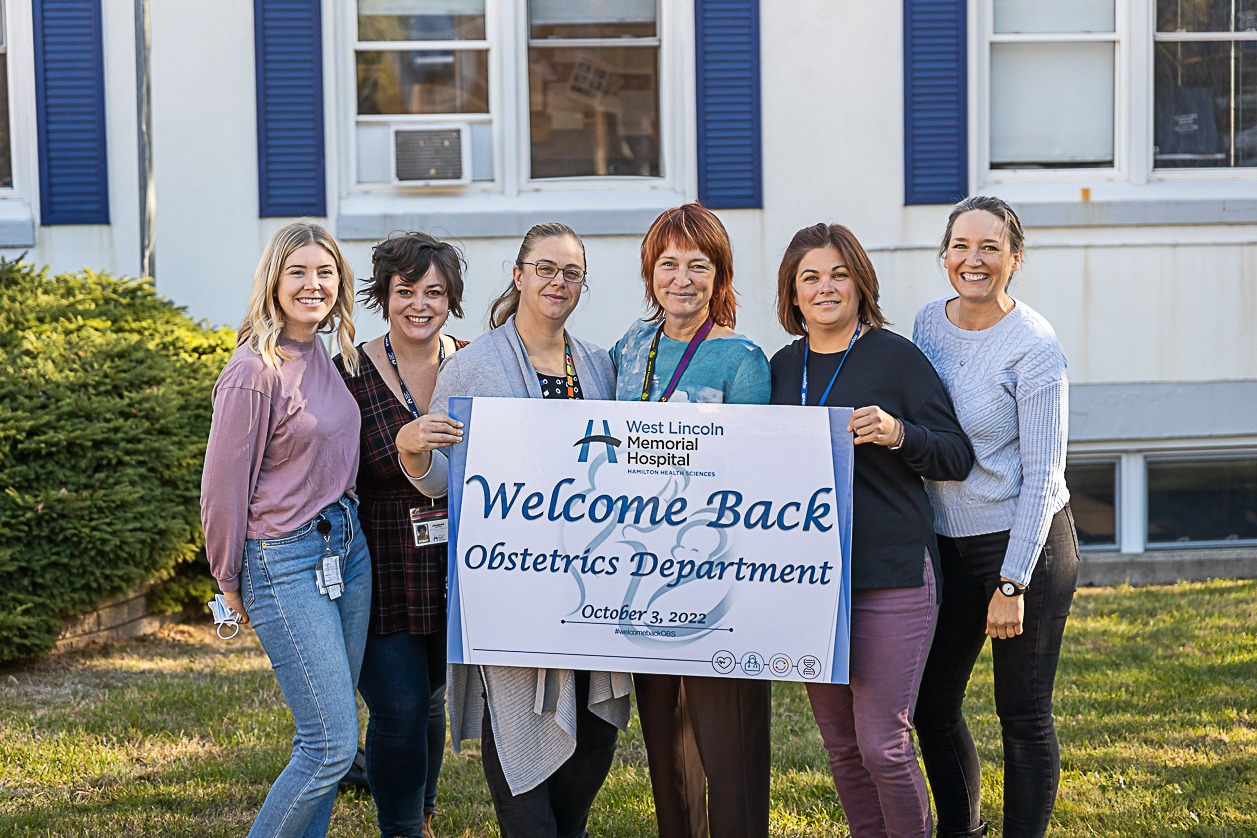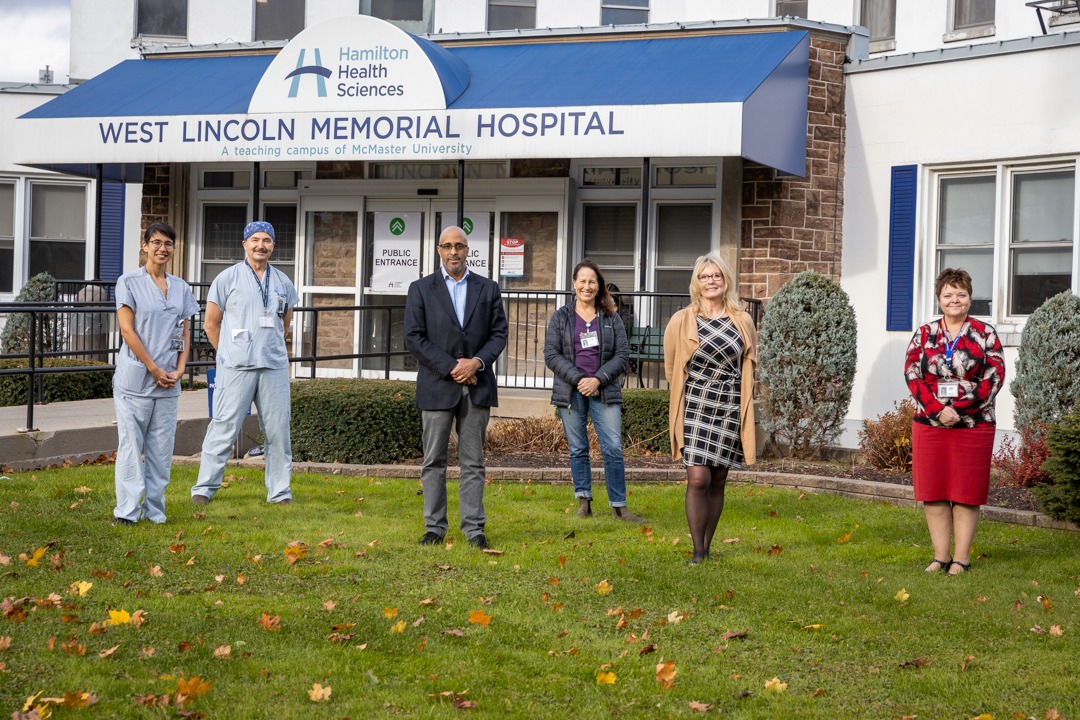
Celebrating 25 years of mental health care at WLMH
Dr. Stephen Webb remembers the days, 25 years ago, when west Niagara residents in need of mental health care had to travel to Hamilton or St. Catharines.
That need was among reasons Webb and a group of fellow health-care providers formed the West Niagara Mental Health Team at West Lincoln Memorial Hospital (WLMH) in 1997.
“The program has come a long way since its inception.” — Dr. Stephen Webb, psychiatrist
The group wanted local control of mental health services so they could provide the very best care to patients from Grimsby and the surrounding rural areas of Winona through to Vineland, says Webb, a part-time psychiatrist at WLMH with privileges at Hamilton Health Sciences and St. Joseph’s Healthcare Hamilton.
“These communities were somewhat orphaned, between Hamilton and St. Catharines, where mental health services tended to be congregated.”
How the program evolved
This year, the West Niagara Mental Health Team marked the 25-year milestone serving the community. “The program has come a long way since its inception,” says Webb.

Dr. Stephen Webb (left) and Dr. Christopher Conley at West Lincoln Memorial Hospital’s Alexander Globe Centre, where the West Niagara Mental Health Team is based.
Those instrumental in creating the team at WLMH also included fellow psychiatrist Dr. Nick Kates, who recruited Webb. Kates recently retired as chair of McMaster University’s Psychiatry and Behavioral Neurosciences department. Other organizers included representatives from the Regional Municipality of Niagara and local family doctors.
Steady growth
When launched in 1997, the three-member team was made up of Webb, a registered nurse and a mental health worker. Today, it includes Webb and three other part-time psychiatrists as well as social workers, an occupational therapist, and nurse. The team hosts psychiatry residents as well as medical students and physician assistants through McMaster University. They have also hosted social work, occupational therapy and nursing students from various universities.
Webb credits Dr. Christopher Conley with growing the program to where it is today. Conley, a doctor of social work, is the program’s supervisor and senior clinical specialist.
The program’s success lies in the team that has been built over the years, says Conley. “I’m proudest of the clinic in terms of the team that we have. We’ve taken Dr. Webb’s lead in focusing on evidence-based care and practice, and being a leader in the community.”
Accomplishments include spearheading two grants with the former LHIN to provide dialectic behavior therapy for residents in the Hamilton and Niagara areas. This evidence-based form of talk therapy can help people who have multiple psychiatric diagnoses and self-harm behaviors.
Mental health services
Some services are offered throughout the year while others are available at certain times of the year. They include:
- Consultation/assessment – This involves gathering information from the patient about their concerns and discussing treatment options.
- Evidence-based treatment – These are treatments that have been proven safe and effective through research. This includes cognitive behavioural therapy, a type of psychotherapy used to treat mental health concerns, as well as therapy to treat Post Traumatic Stress Disorder. “For a small program like ours, I think it’s remarkable that we continue to offer these kinds of specialized treatments,” says Webb.
- Early psychosis intervention (ages 14-35) – These patients may be experiencing hallucinations where they hear sounds, noises or voices. They may have unusual beliefs or show unusual behaviors.
- Transition age-based care (ages 16-25) – These are specific services for patients moving into young adulthood who have previously had mental health services as children, have not had treatment yet, or have complex and difficult problems that make transitioning to adult services challenging.
- Adult Services (ages 16-65) — Adult mental health services are available for patients who don’t meet criteria for transition age-based care treatment or early psychosis intervention.
For more information on the West Niagara Mental Health Team, including video resources, visit westniagaramentalhealth.com



